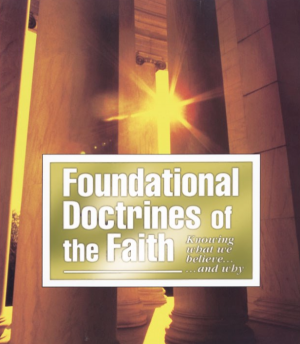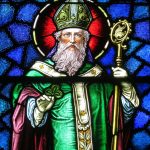Different people have different ideas about the meaning of the word “church.”
Sometimes people use the term to describe a building in the community decorated with religious symbols. Others describe the church as a social group to which they belong. Still others use the term to describe a particular denomination such as the Church of England or the Roman Catholic Church. And there are others who use this term as an expression to describe the entity to which all Christians belong (the universal church).
Outside the Christian community, people have other ideas about the church. For some, it is a community group which sponsors a particular service they find helpful such as a day-care center. Others see the church as the place they meet others like themselves in a friendship or a support group. Some think of it as a place to send their children on Sunday morning. Others see it as a somewhat irrelevant institution which may have had its place in a previous generation.
Jesus knew we would need help living the Christian life, so He promised, “I will build my church” (Matthew 16:18).
Jesus provided the church as a means of Christians assembling together to encourage and help one another in the Christian life. This would enable church members to be more effective in reaching out to others in their community.
Because the church has such a prominent role in the plan of God for His people, it is important to understand the biblical answer to these four important questions….
- What Makes a Church a Church? The Greek word ekklesia, translated “church” in the New Testament, was widely used in the first century to describe a group that was called out from the larger community for a specific purpose. But the word is also used in a more technical way to describe the gathering of the early Christians. The early church was a worshipping church, constantly engaged in “praising God” (Acts 2:47). The early church was involved in instructing people and fellowship, in the breaking of bread, and in prayers. (Acts 2:42). Evangelism was an important function of the early church resulting in others being converted to Christianity daily (Acts 2:47). In the New Testament, the church met in smaller groups to accomplish ministry (Acts 12:12) and larger gatherings for celebration (Acts 3:11). This pattern has been followed throughout church history by growing churches.
What Is the Purpose of the Church? The church’s purpose is found in Jesus’ Great Commission, “Go therefore and make disciples of all the nations, baptizing them in the name of the Father and of the Son and of the Holy Spirit, teaching them to observe all things that I have commanded you” (Matthew 28:19-20). At the heart of the Great Commission is the task of making disciples. Therefore, evangelism is more than decision-making, it is disciple-making.
What Does Church Membership Involve? Church membership is an expression of belonging. When people join a church, they are telling others they feel at home in that church and want to be a full participant in the life of the church. Therefore, church membership involves more than just adding your name to the role. It is an expression of your desire to be enfolded into the church family. It provides you with the opportunity to be involved in the lives of others. Therefore, when Christians are baptized and join a church, they demonstrate outwardly what has already happened inwardly. Because they become a part of the body of Christ by receiving Him as Saviour (John 1:12), they want to become an active member of a local church which is a local expression of the body of Christ. “Now you are the body of Christ, and members individually” (1 Corinthians 12:27).
How Do I Respond to Church Leadership? The leader of the church is the Lord Jesus Christ Himself. He is described as “the head of the body, the church” and the One who alone holds preeminence in the church (Colossians 1:18). While Christ is the leader of the church, He has appointed shepherds, or pastors, to provide leadership in the church. Paul reminded the Ephesian elders of their responsibilities “to all the flock, among which the Holy Spirit has made you overseers, to shepherd the church of God” (Acts 20:28). As church members, it is our responsibility to pray for, support, and follow our pastors as they lead. God also established the office of deacons in the church. The word deacon could be translated servant. The first deacons were appointed by the apostles to do ministry and restore harmony in the church. As a result of their faithful ministry “the word of God spread, and the number of the disciples multiplied greatly” (Acts 6:1-7).
When we become fully involved in the life of the church, we are working with Christ in doing what He is doing (1 Corinthians 3:9).
That opportunity alone should motivate us to become as fully involved as possible in the ministry of a local Bible-believing church in our community.
Dr. Elmer Towns is Vice President of Liberty University, which he co-founded in 1971 with Dr. Jerry Falwell. Dr. Towns has been a popular Sunday school teacher and college and seminary professor for decades.
This article is excerpted and condensed from Dr. Towns’ 60-page eBook Foundational Doctrines of the Faith. Read it NOW, eBook instant PDF Download, $11 value only $4.99, More…
Here is a summary article of the 8 Foundational Doctrines of the Christian Faith
RELATED ARTICLES: WHAT WE BELIEVE ABOUT…
Permission granted to copy, forward, share, post and reproduce everything in this article, please include this link Source: ChurchGrowth.org, CLICK HERE to subscribe for FREE
To grow as a Christian, you need to…
- Pray, worship God and read The Bible each day,
- Join a small group with other Christians to encourage each other’s Christian growth,
- Each week, join in worship at a good Church that preaches The Bible as God’s Word,
- And minister to others in the name of God.
Discover more about how God has given to you spiritual Gifts for your own personal ministry and for ministry with others using the links and resources shown below.
Here are more free articles, one for each of the nine Team Ministry Spiritual Gifts…
Each of these nine Team Ministry Spiritual Gift articles was excerpted from the book Your Gifts: Discover God’s Unique Design for You.
Discover more about your spiritual gifts and each of the nine team gifts.
For individuals and groups.
Read This Book NOW, eBook Instant PDF Download, Click Here
Read This Book with Your Group, Bulk Pricing for Groups, Click Here

Spiritual Gifts Can Unleash the Power of Everyone!
Lead others to discover their spiritual gifts.
For pastors, teachers and group leaders.
Read This Book Now, eBook Instant PDF Download, Click Here
Read This Book with Your Group of Pastors and Shepherds, Bulk Pricing for Groups, Click Here














